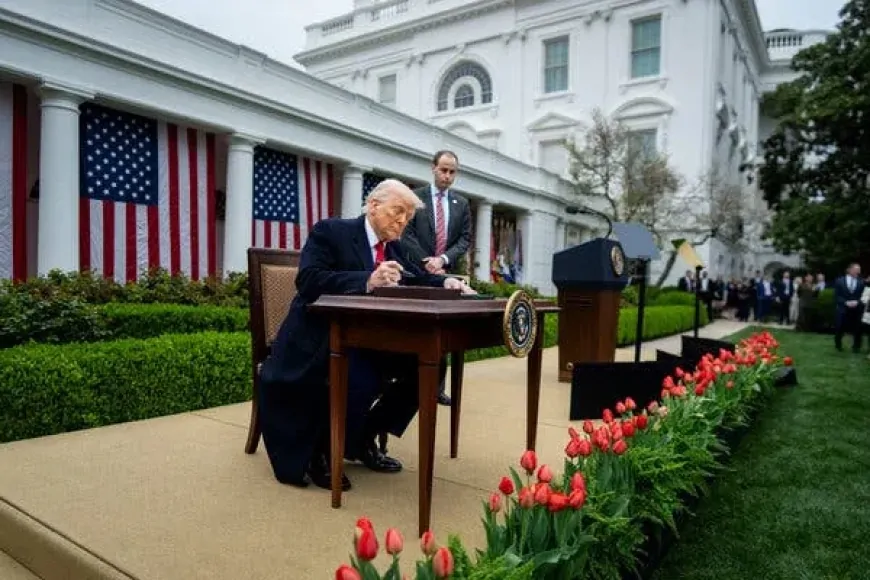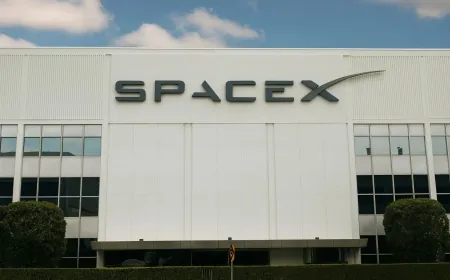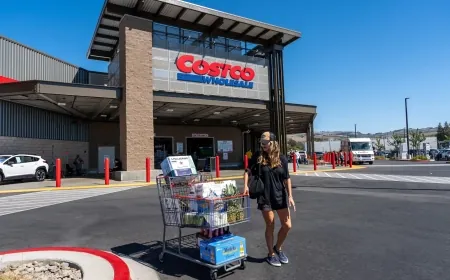Trump Defends Tariffs, Blames Biden for High Costs: “The Good Economy Is Mine”
President Trump blames Biden policies for high prices while defending new tariffs and market turbulence. He claims U.S. manufacturing will rebound—even if consumers pay more now.

President Donald Trump said the current U.S. economy reflects a “split legacy,” crediting his administration for areas of growth and placing blame on policies from the Biden era for the country’s inflation and cost-of-living challenges. Speaking on national television, Trump argued that the successes in the economy have stemmed from his leadership, while difficulties still weighing on Americans were inherited from the prior administration.
“I think the good parts are the Trump economy, and the bad parts are the Biden economy,” Trump stated.
Since returning to the White House in January, Trump has pushed through a slate of aggressive trade measures aimed at reviving domestic production. These include a 145% tariff on Chinese imports, a universal 10% tariff across most goods, and the suspension of the de minimis threshold that previously exempted low-cost shipments from duties. While these moves are popular among manufacturers and some labor unions, consumers and small businesses are beginning to feel the squeeze.
Cost Pressures Persist, But Trump Insists Change Takes Time
Grocery bills have continued to climb, with data showing prices up 2.41% in March 2025 compared to the same month last year. That marked the sharpest increase since mid-2023, pushing more households to reevaluate spending habits.
Trump, however, said the situation is starting to improve. “We got the costs down. It takes time, but it’s happening,” he said.
Still, the president offered a pointed message to consumers about adjusting expectations. Asked about the strain on household budgets due to tariffs, Trump said Americans may have to reconsider what counts as essential.
“I don’t think a baby needs 30 dolls. Maybe three or four. That’s just common sense,” Trump said, suggesting the era of cheap imported goods is coming to an end.
Market Volatility Underlines Public Concerns as Trump Points to ‘Transition Period’
Since Trump resumed office, the S&P 500 has fallen 6% overall. However, there have been sharp swings, including a 9.5% surge in early April—its strongest single-day gain in nearly two decades—after Trump temporarily eased some tariffs. The back-and-forth has made it harder for businesses and investors to plan ahead.
Trump downplayed concerns about the volatility, describing it as part of a larger adjustment phase. “Sometimes you have to take medicine to fix something,” he said, referencing the long-term aim of rebuilding domestic manufacturing, even if it comes with short-term market pain.
Recession Warnings Grow as Business Owners Brace for Higher Costs
Major financial institutions are growing more cautious. JPMorgan recently raised its forecast for a recession to 60%, and Goldman Sachs has set the probability at 45%. Manufacturing orders are slowing, and logistics costs are rising—signs that Trump’s tariffs, while politically popular among some blue-collar constituencies, could be cooling broader economic activity.
Small business owners are particularly vulnerable. Unlike major car manufacturers—who have been granted delayed tariffs and reimbursement allowances—independent retailers and importers have received no comparable support. When asked whether he would extend relief to smaller enterprises, Trump responded, “They’re not going to need it.”
That remark has sparked frustration among some small business associations, who say they’re facing shrinking margins and consumer resistance to higher prices.
Tariff Policy May Become a Long-Term Fixture, Trump Signals
Pressed on whether his tariffs are temporary or permanent, Trump indicated they may be here to stay. “Why would anyone build in the U.S. if they thought tariffs were going away?” he said. His message to manufacturers is clear: set up production here, or face penalties on imports.
This approach has drawn praise from some domestic producers who see tariffs as leveling the playing field. But trade groups warn it could lead to higher costs across the supply chain, especially for industries that rely on globally sourced parts.
Trump Escalates Pressure on the Federal Reserve, Calls for Faster Rate Cuts
Trump also used the interview to renew his criticism of Federal Reserve Chair Jerome Powell, accusing him of acting too slowly on interest rates. He called Powell “a major loser” and said his delay in cutting rates is hurting U.S. growth.
Despite the harsh words, Trump said he won’t move to remove Powell before his term ends in 2026. “I’ll get to change him very quickly anyway,” Trump said, implying a new direction in monetary policy once Powell’s term expires.
Although federal law protects the Fed chair from dismissal without cause, Trump’s comments have raised speculation about his preferred successor and how closely he intends to steer central bank policy if elected to a second full term.
Manufacturing Push Marks Shift from Consumer-Driven Economy
Trump’s current strategy appears to be a clear departure from previous administrations that focused on consumption and low prices. Instead, he is pushing for a supply-side realignment, centered around domestic manufacturing, higher tariffs, and reshoring critical industries. His team argues that this will bring long-term stability and job creation, even if short-term costs remain high.
However, this shift comes at a time when consumer spending is slowing, retail sales are uneven, and wage growth is not keeping pace with inflation in key sectors like housing, food, and energy.
The White House says this is the necessary price to reverse decades of offshoring. Economists remain divided—some agree the strategy may boost industrial investment, while others warn it risks reducing global competitiveness if not paired with innovation and workforce training.
Also Read: Apple Global Manufacturing Strategy Faces Fresh Pressure from U.S. Tariffs
































































